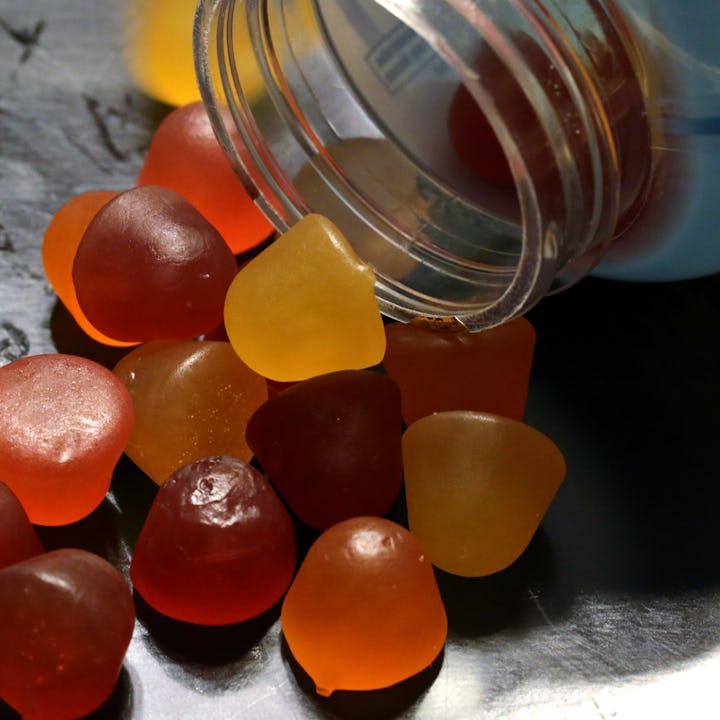Melatonin Poisoning In Children Is On The Rise
There has been a steep rise in melatonin poisonings over the past decade — with a massive spike during the pandemic.

Melatonin is often touted as a safe, non-addictive sleep aid. The supplement acted as a saving grace for many throughout the pandemic (and everything else going on in the world), and its rise in popularity gave way to an expanding market of the supplement in many forms, from pills to powders to palatable gummies.
Unfortunately, the candy-like gummy supplements are particularly appealing to children who see it as just that: candy. Last year, U.S. poison control centers received over 52,000 calls about children accidentally getting into the bottle of melatonin and taking too much.
A new study by the CDC confirms the increase in melatonin overdoses in children is on the rise. The study, which spanned from 2012-2021, found a 530% increase in overdoses during that time period.
The largest spike occurred from 2019 to 2020 — just as the pandemic hit — with a 38% increase in melatonin overdoses in children and teens.
The study found that more than 260,000 overdose cases were reported over the last decade. Of these cases, more than 4,000 required hospitalization, and 300 required intensive care. A majority of the cases were unintentional ingestion, and kids under the age of 5 made up 83.8% of them.
Five children needed mechanical ventilation after consuming too much melatonin. A 3-month-old and a 1-year-old died from melatonin poisoning.
Experts believe the extreme rise could be due to the fact that melatonin is often left out on a night stand as opposed to tucked away in a safe place with other medications.
“Parents should really see melatonin just as any other medication that has the potential to do harm to kids, and it can be even more dangerous because it can look like candy,” Dr. Karima Lelak, a lead author of the study, told BuzzFeed News.
“If a parent takes their melatonin after reading this paper and puts it in their medicine cabinet, I am humbled because I think that's really a big take-home point: safe storage.”
Melatonin is a naturally occurring hormone in our bodies. It is one of the hormones our brain produces in response to darkness, hence its use as a sleep aid. According to the Mayo Clinic, most melatonin supplements are a synthetic version of that hormone, designed to mimic its known benefits of promoting sleep and helping time circadian rhythm.
Still, just because something is natural (or meant to replicate something natural), doesn’t mean it can’t be harmful in large doses. Keep supplements out of reach of young children, and talk to your pediatrician before starting any supplement course for your child.